Alishba Sadiq
Chaotic Time Series Prediction using Spatio-Temporal RBF Neural Networks
Aug 17, 2019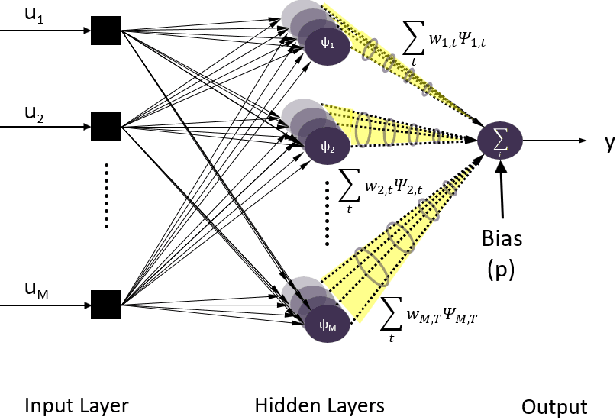
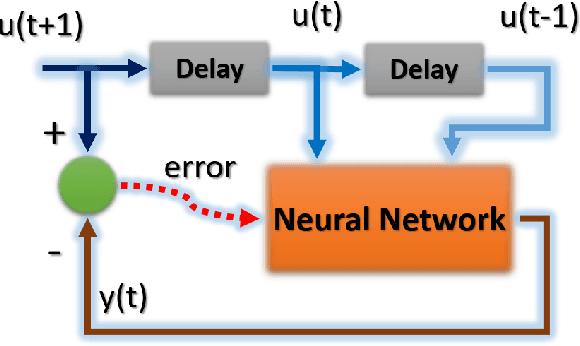
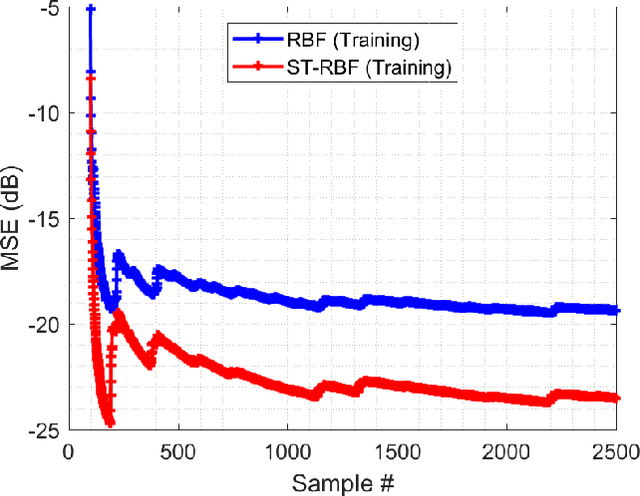
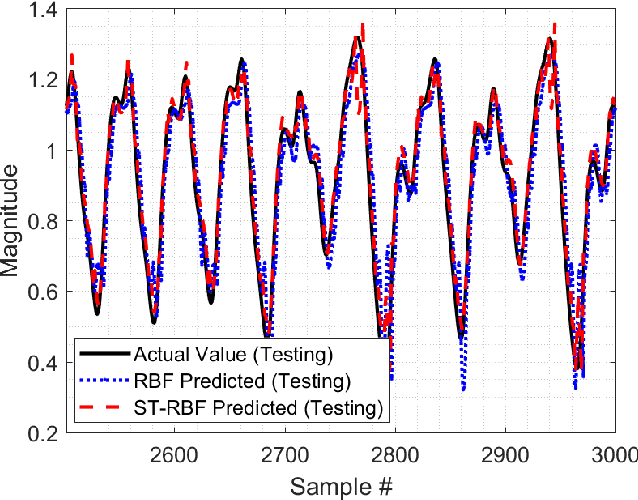
Abstract:Due to the dynamic nature, chaotic time series are difficult predict. In conventional signal processing approaches signals are treated either in time or in space domain only. Spatio-temporal analysis of signal provides more advantages over conventional uni-dimensional approaches by harnessing the information from both the temporal and spatial domains. Herein, we propose an spatio-temporal extension of RBF neural networks for the prediction of chaotic time series. The proposed algorithm utilizes the concept of time-space orthogonality and separately deals with the temporal dynamics and spatial non-linearity(complexity) of the chaotic series. The proposed RBF architecture is explored for the prediction of Mackey-Glass time series and results are compared with the standard RBF. The spatio-temporal RBF is shown to out perform the standard RBFNN by achieving significantly reduced estimation error.
Spatio-Temporal RBF Neural Networks
Aug 04, 2019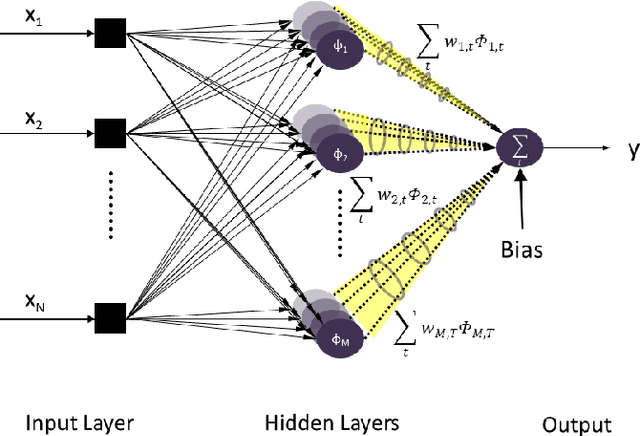
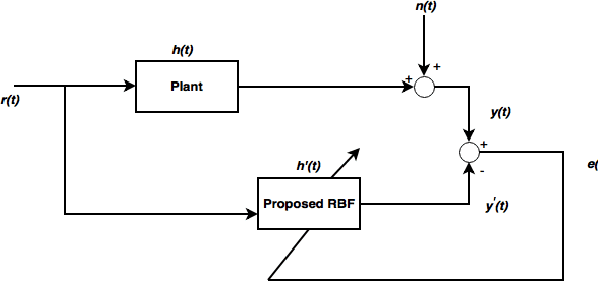

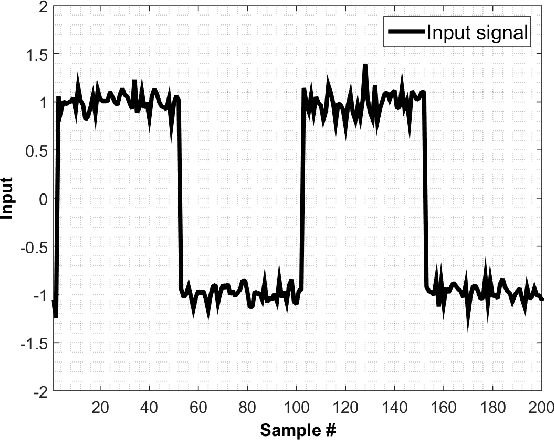
Abstract:Herein, we propose a spatio-temporal extension of RBFNN for nonlinear system identification problem. The proposed algorithm employs the concept of time-space orthogonality and separately models the dynamics and nonlinear complexities of the system. The proposed RBF architecture is explored for the estimation of a highly nonlinear system and results are compared with the standard architecture for both the conventional and fractional gradient decent-based learning rules. The spatio-temporal RBF is shown to perform better than the standard and fractional RBFNNs by achieving fast convergence and significantly reduced estimation error.
* Published in 2018 3rd International Conference on Emerging Trends in Engineering, Sciences and Technology (ICEEST)
q-LMF: Quantum Calculus-based Least Mean Fourth Algorithm
Dec 20, 2018
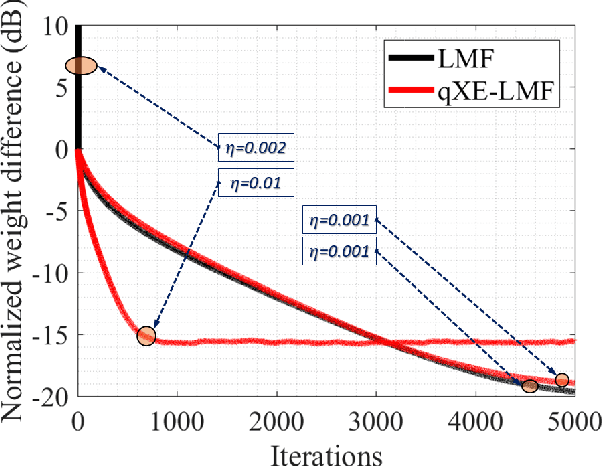
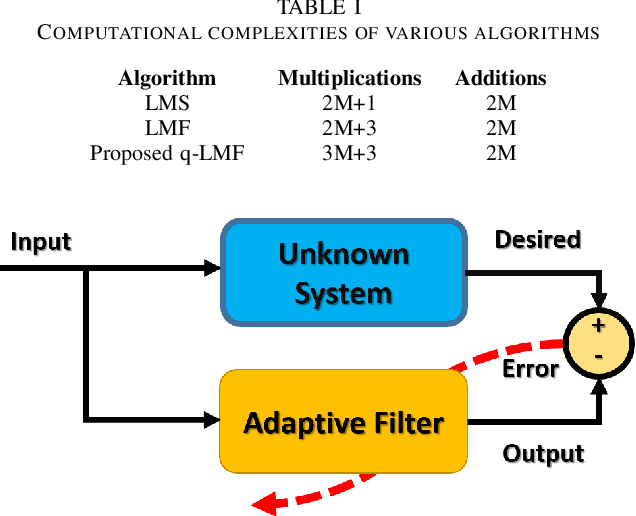
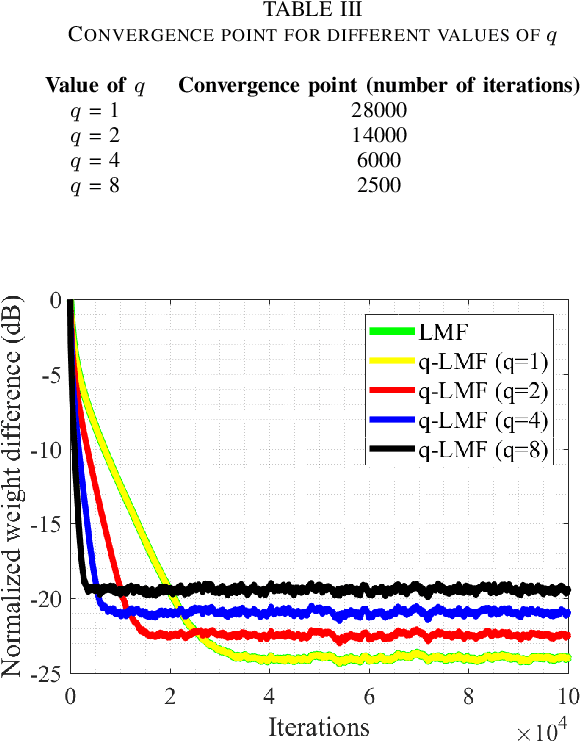
Abstract:Channel estimation is an essential part of modern communication systems as it enhances the overall performance of the system. In recent past a variety of adaptive learning methods have been designed to enhance the robustness and convergence speed of the learning process. However, the need for an optimal technique is still there. Herein, for non-Gaussian noisy environment we propose a new class of stochastic gradient algorithm for channel identification. The proposed $q$-least mean fourth ($q$-LMF) is an extension of least mean fourth (LMF) algorithm and it is based on the $q$-calculus which is also known as Jackson derivative. The proposed algorithm utilizes a novel concept of error-correlation energy and normalization of signal to ensure high convergence rate, better stability and low steady-state error. Contrary to the conventional LMF, the proposed method has more freedom for large step-sizes. Extensive experiments show significant gain in the performance of the proposed $q$-LMF algorithm in comparison to the contemporary techniques.
Comments on "Momentum fractional LMS for power signal parameter estimation"
May 19, 2018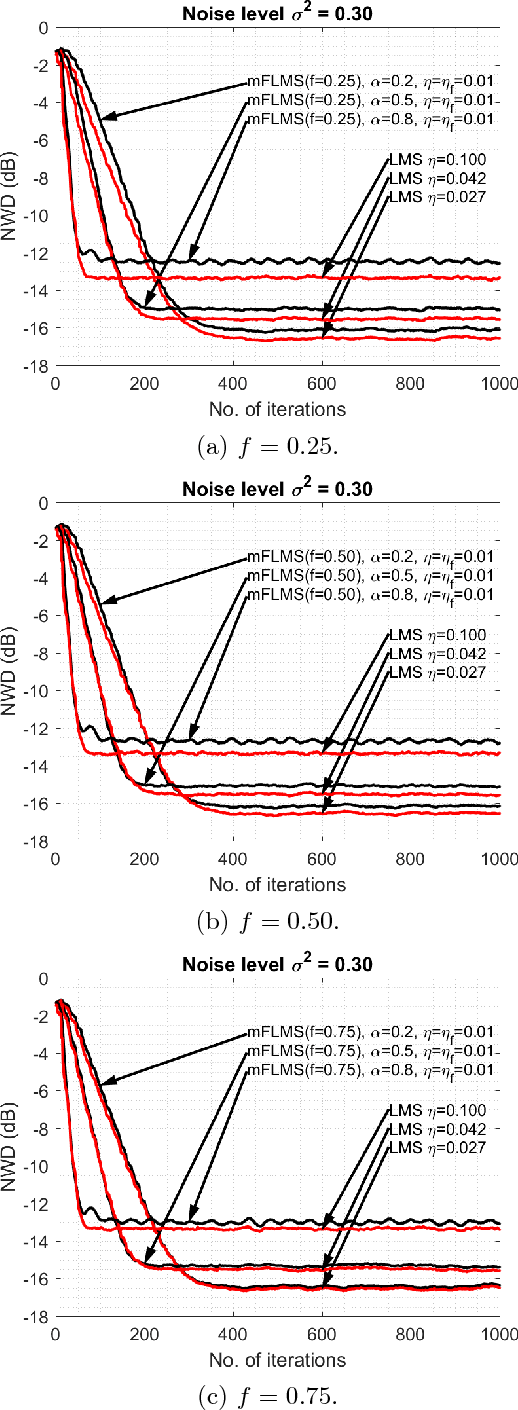

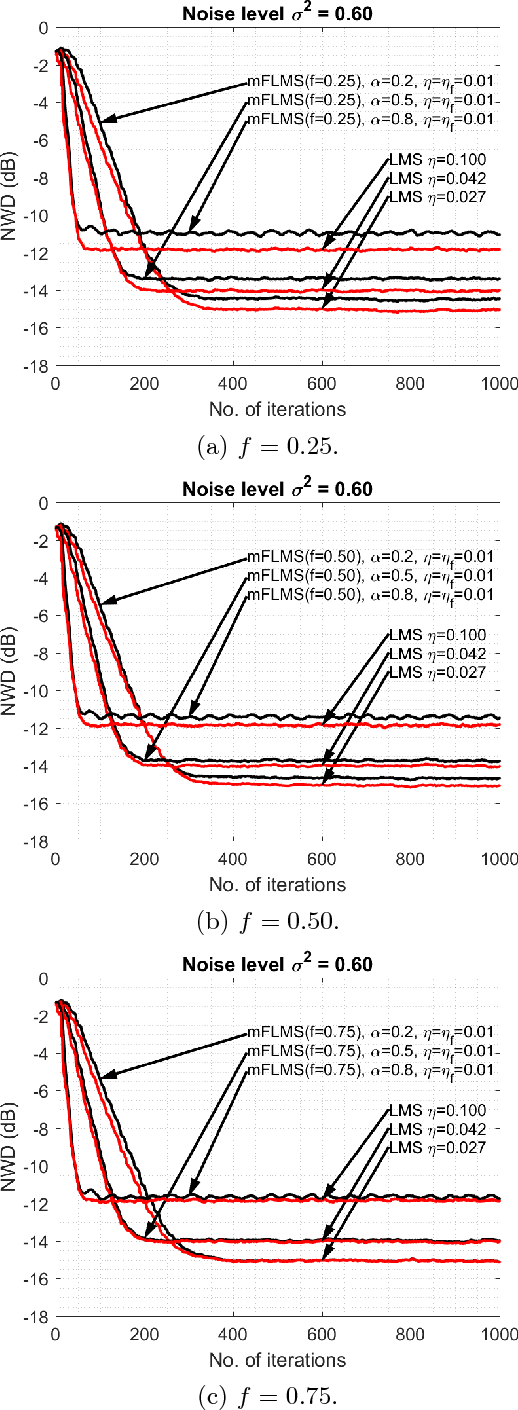

Abstract:The purpose of this paper is to indicate that the recently proposed Momentum fractional least mean squares (mFLMS) algorithm has some serious flaws in its design and analysis. Our apprehensions are based on the evidence we found in the derivation and analysis in the paper titled: \textquotedblleft \textit{Momentum fractional LMS for power signal parameter estimation}\textquotedblright. In addition to the theoretical bases our claims are also verified through extensive simulation results. The experiments clearly show that the new method does not have any advantage over the classical least mean square (LMS) method.
 Add to Chrome
Add to Chrome Add to Firefox
Add to Firefox Add to Edge
Add to Edge